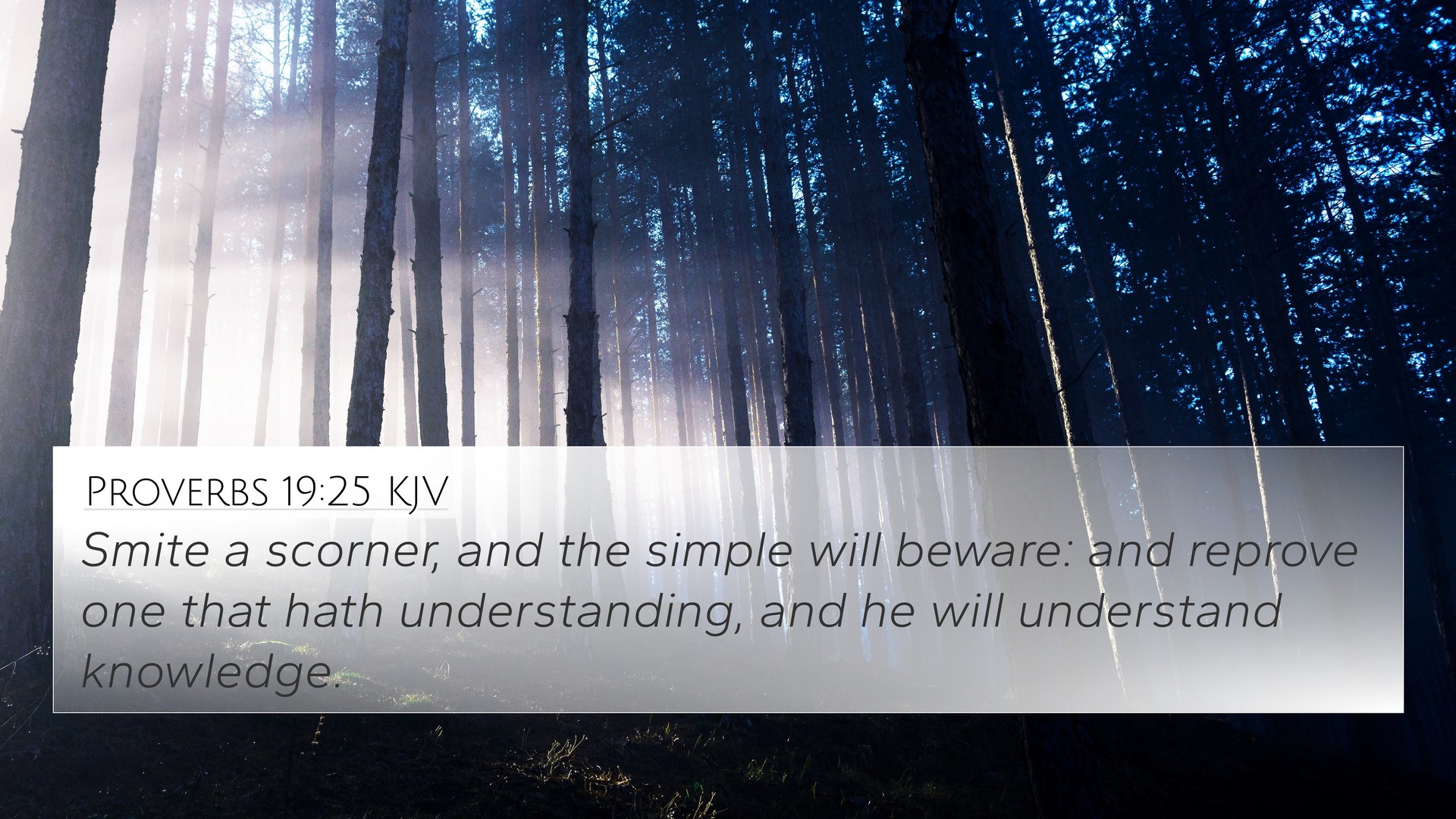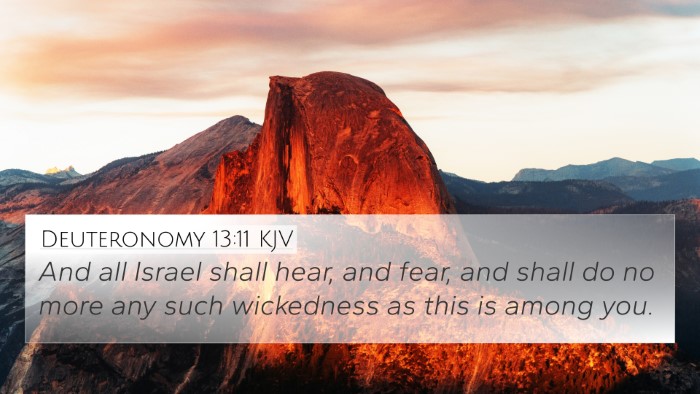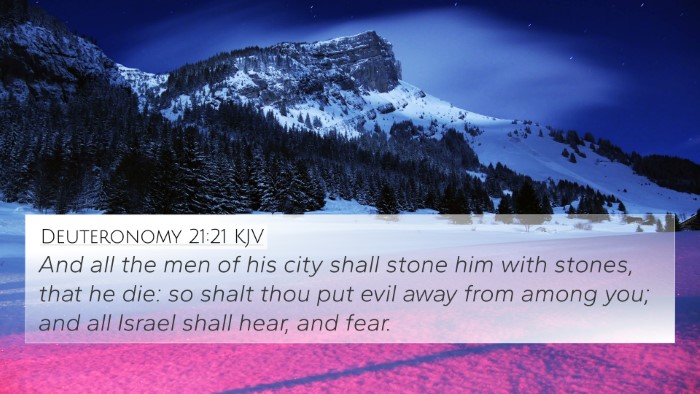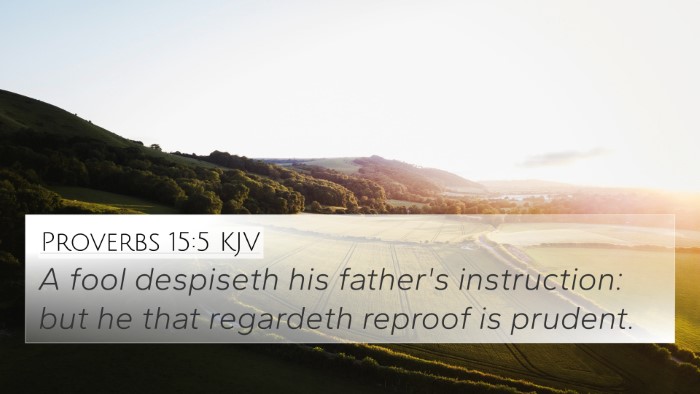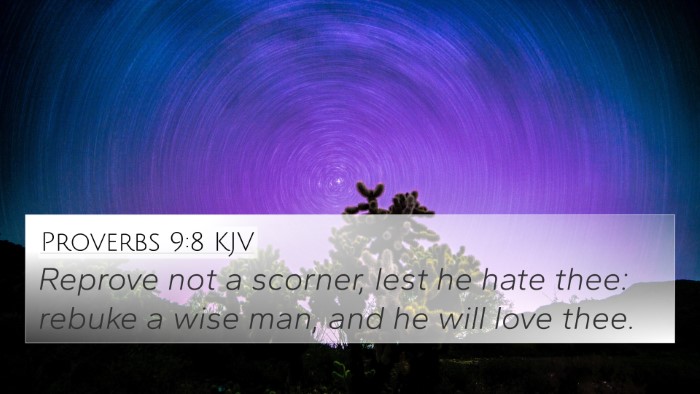Understanding Proverbs 19:25
Bible Verse: "Smite a scorner, and the simple will beware: and reprove one that hath understanding, and he will understand knowledge."
Proverbs 19:25 serves as a crucial reflection on the dynamics of wisdom and the importance of correction. In this verse, we see the contrasting responses of the scorner and the wise man when faced with discipline. Through the insights derived from public domain commentaries such as Matthew Henry, Albert Barnes, and Adam Clarke, we can understand the depth of this verse more clearly.
Insights from Commentaries
-
Matthew Henry:
Henry emphasizes that the wise will accept reproof and grow from it, whereas the scorner will harden his heart. Therefore, a wise man's capacity to learn and grow is highlighted, even in the midst of correction.
-
Albert Barnes:
Barnes points out that the simple, or the naive, learn by observing the consequences faced by the scorner. This speaks to the importance of community learning, whereby the mistakes of one can serve as lessons for others.
-
Adam Clarke:
Clarke notes the necessity of rebuke for the scorner, expressing that such individuals often lead others astray and require correction to prevent further moral decline.
Thematic Connections
This verse highlights the broader Biblical theme of discipline and its dual outcome depending on one's disposition towards correction. Below are connections to other scriptures that resonate with this theme:
- Proverbs 1:30-31: "They would none of my counsel: they despised all my reproofs." - Reflects the consequences of ignoring wisdom.
- Proverbs 15:32: "He that refuseth instruction despiseth his own soul: but he that heareth reproof getteth understanding." - Aligns with the acceptance of correction.
- Hebrews 12:6: "For whom the Lord loveth he chasteneth, and scourgeth every son whom he receiveth." - God's love is often expressed through correction.
- 2 Timothy 3:16-17: "All scripture is given by inspiration of God, and is profitable for doctrine, for reproof, for correction, for instruction in righteousness." - Affirms the value of reproof in scripture.
- Galatians 6:1: "Brethren, if a man be overtaken in a fault, ye which are spiritual, restore such an one in the spirit of meekness." - Encourages correction amongst community.
- Proverbs 9:8: "Reprove not a scorner, lest he hate thee: rebuke a wise man, and he will love thee." - Contrasts the responses of different types of individuals.
- Proverbs 27:5-6: "Open rebuke is better than secret love. Faithful are the wounds of a friend; but the kisses of an enemy are deceitful." - Highlights the value of honest correction.
Application and Cross-Referencing
Understanding Proverbs 19:25 invites us to embrace correction and learning. By appreciating the connections between Bible verses, readers can engage in a deeper theological study. Here's how to effectively utilize cross-references:
- Utilize a Bible concordance to find related verses.
- Implement cross-reference study methods by comparing themes across scripture.
- Recognize thematic connections to link passages that speak on wisdom, correction, and growth.
- Engage with Bible reference resources for sermon preparation or personal study.
- Practice identifying connections between Old and New Testament texts to deepen understanding.
- Prepare detailed cross-references when studying pertinent messages in Psalm or the Gospels.
Conclusion
Proverbs 19:25 serves as a profound reminder of the value of wisdom, correction, and learning from one another. The contrasting responses of the scorner and the wise provide a framework for understanding our own interactions with correction, encouraging us to embrace instruction in humility.
By engaging in comparative Bible verse analysis and identifying cross-referenced themes, we gain a richer understanding of God's wisdom as presented throughout scripture.
Ultimately, the path to wisdom is paved with the willingness to understand knowledge, and this verse encourages seekers of truth to approach God's reproof with an open heart.
